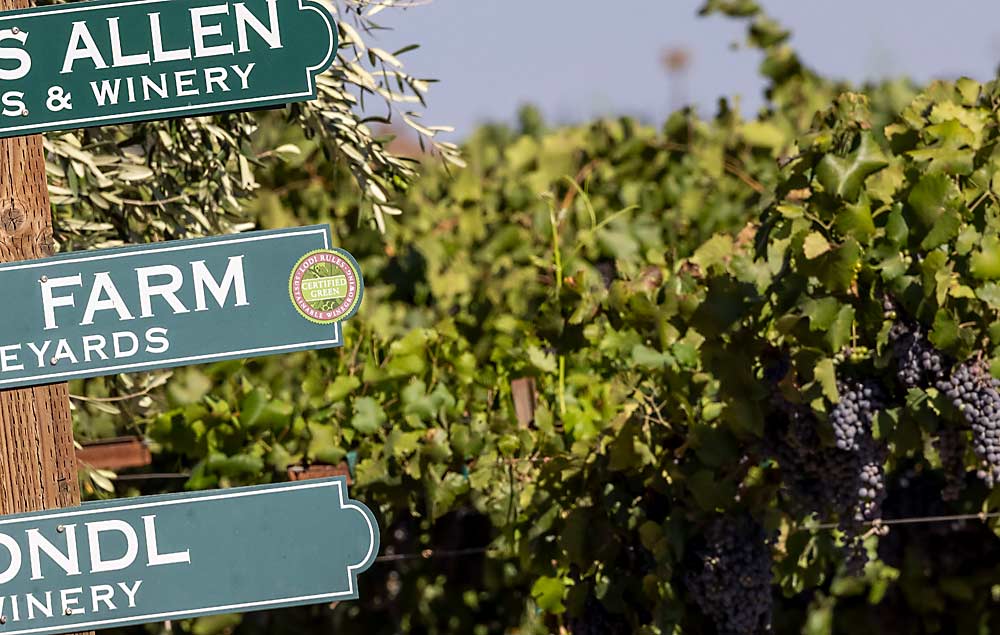
Washington is about to launch a sustainability certification standard for its wine industry, but California has several, some of them nearly 20 years old.
Supporters say certifications help inform customers about responsible practices and give growing regions their own identity. What’s more, research shows certification helps sell wine.
Not every individual customer cares about individual wineries’ practices, but there is marketing value in the overall message of sustainability — a holistic term that encompasses a responsibility for the environment, human welfare and viable business decisions. A label on a bottle or sign with the word “sustainable” can improve the reputation of a whole community, said Susan Tipton, owner of Acquiesce Winery in Lodi, California.
“It’s really about your region and not just an individual winery,” said Tipton, who specializes in white wines. “You can’t get that message out on your own anyway.”
The Lodi growing region launched its own sustainability certification, dubbed Lodi Rules, in 2005. Today, more than 55,000 acres are certified — 29,000 acres within the Lodi American Viticultural Area and 26,000 acres in other regions throughout California. Washington has 206 acres under Lodi certification. (Wines made from Lodi-certified grapes outside the Lodi appellation use a label that doesn’t contain the word “Lodi.”)
Like many of the certification programs, the Lodi standards measure and score farming and business practices around environmental health, social equity and economic viability. During each annual audit, growers must accumulate enough points to pass.
Then, it’s on the wineries to make sure customers know about it.
“We’re doing all this work in the field; how do we get our consumers to know about it and care about it?” said Madelyn Ripken Kolber, sustainability director for KG Vineyard Management of Lodi.
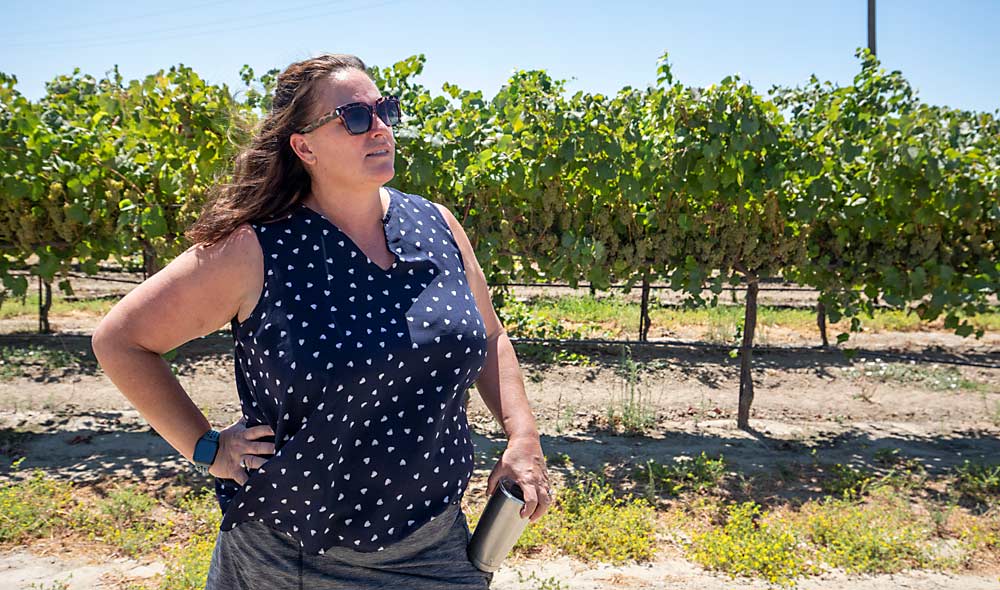
Getting wineries on board is the first step, she said. Some of the participating vineyards hold an annual Lodi Rules field day for other winery representatives, showing them barn owl boxes and cover crops. Then, wineries need to reach out to their own employees. She encourages them to teach staff a 30-second pitch.
Acquiesce also holds a sustainability tour each year for its customers, Lipton said.
Lodi Rules is not the only game in town. Each sustainable program is customized based on different regional characteristics of each winegrowing region — thereby creating a marketing tool around both place and practice.
In the Sonoma Valley, 99 percent of the vineyard acres are certified, with the Sonoma County Sustainability logo identifying wines made with those certified grapes. The growing area even offers an app to help consumers learn sustainability stories. Neighboring Napa Valley has Napa Green for vineyards and a companion certification program for wineries. This year, there are 89 Napa Green certified wineries.
There is also the California Sustainable Winegrowing Alliance that aims to harmonize the varying requirements of the local programs and communicate their commonality.
Sustainable profits
Marketed right, sustainable practices can mean more money for growers and wineries.
Consumers told the Wine Institute in a 2020 survey they would be willing to pay an average of $3 extra for a sustainably produced wine. Nine of 10 millennials surveyed said they would be willing to pay more for sustainable wines. The term “sustainably produced” increased the likelihood of purchase by 8 percent, while “organic” boosted purchase likelihood by 5 percent.
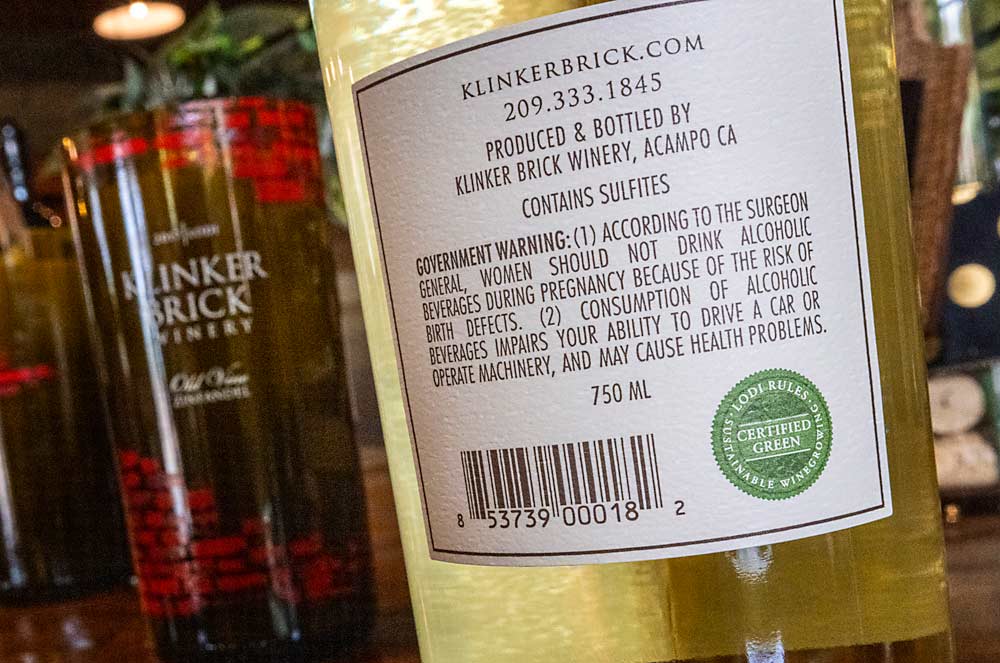
Some wineries require sustainability from their vineyards. Bogle Vineyards, a winery north of Lodi and 2019 Wine Enthusiasts’ American Winery of the Year, does so for its 91 growers. But many wineries, including Lodi’s Michael David Winery and LangeTwins Winery, have paid bonuses for sustainably certified grapes. Since 2010, wineries have paid about $10 million in bonuses to growers participating in the Lodi certification program, said Stephanie Bolton, sustainable winegrowing director of the Lodi Winegrape Commission.
In Washington, Ste. Michelle Wine Estates has tried to track the premium customers pay for certified sustainable wine. “The link isn’t as clear as we would like it,” said Ryan Pennington, a spokesman for the company, the state’s largest wine producer.
The value lies in overall public relations, and a certified label helps communicate what at times is a complicated story, Pennington said.
“When it comes to marketing, it’s not a silver bullet,” he said.
—by Ross Courtney

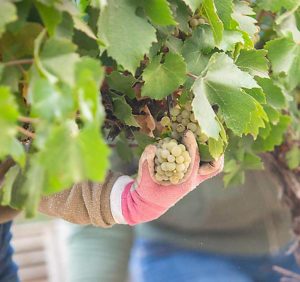
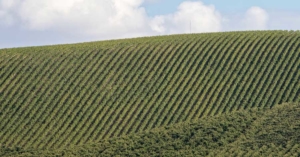





Leave A Comment